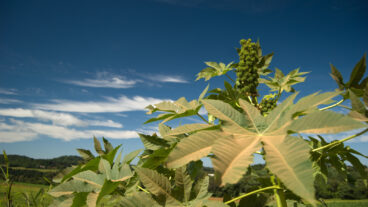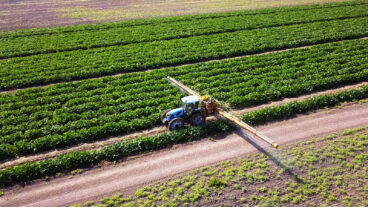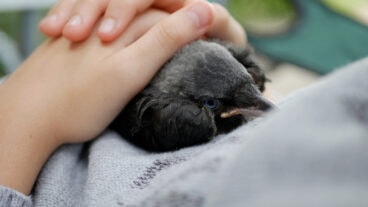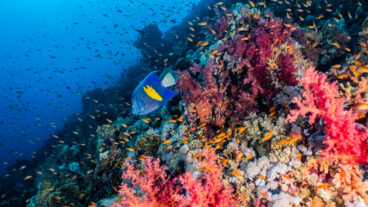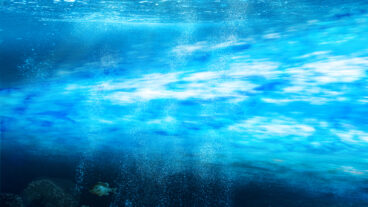The JNF is working to reclaim and protect Israel’s water resources and their sources.
I recently visited Israel as a representative to the GA – the 72nd General Assembly of the United Jewish Communities. Each American representative at the GA was assigned a study day-trip, the purpose of which was to enable each of us to learn in great depth and detail about an aspect of life in Israel; be it cultural, political, economic, or social. It meant that one would learn of Israel’s successes, and achievements, but also of the struggles and problems faced. We were to visit a specific institution or institutions which are part of the tapestry of Israel.
I was assigned to a day of exploring the subject titled ‘The Politics of Water’. I could only yawn. How boring, I thought, how unsexy a subject! Everyone knows that Israel has water problems; it is in short supply and the rainfall is inadequate. The aquifers need to be monitored so as not to deplete them and invite salt water to seep into them. Sure, Israel also has to share its scarce water supplies with Lebanon, Syria, Jordan and the Palestinian authority. Yet, Israel has successfully used desalination to provide Eilat with water and has considered importing water from Turkey to supplement its growing needs. Still, last winter’s heavy rains have brought a measure of relief. Israel also encourages conservation. So what else was I going to learn by exploring the politics of water?
Well, like everything else at the GA this was an amazing program. It dealt with the evolving work of Keren Kayemet -the Jewish National Fund, and its tangible influence on the development of the state of Israel. JNF which is now 102 years old, began by purchasing land, redeeming it and holding it in trust for the Jewish people. It proceeded to drain the swamps and to eradicate malaria from the land. JNF followed this by planting trees to reclaim the land that had been ravaged by time, neglect and abuse. It created parklands and worked on behalf of the ecology.
Now, once more, JNF’s work has evolved and has become broader. It still plants trees and works on the environment. But now, it is especially involved in protecting, reclaiming and restoring this priceless resource called water. As well as I knew the subject matter, I soon realized that there was more to this than I understood. I had missed some very salient points. This was made clear to me as we proceeded on our trip.
Our bus took us to Emek Hefer, a valley which stretches from near the coastal city of Netanya eastward. Here we visited a JNF water purification plant, and saw the large pools used in the process. Here, too, we had a very interesting and thought-provoking session with Dr. Meir Ben Zvi who is professor of Physics and Hydrology at Hebrew University.
Some of the information was a revelation. What city gets more rainfall in the course of a year – London or Jerusalem? The answer given would probably be London. But in fact London and Jerusalem both have about the same amount of rainfall in the course of the year. The difference lies in its distribution. The fact is that London’s rainfall is continuous. But Jerusalem gets all her rain during three months. As a result there is much runoff and evaporation and here lies the difference. Israel’s Mediterranean climate in which it never rains during the summer is an important factor.
Another problem of water distribution arises from the fact that Israel is very diverse geologically. The northern area of the country called the Galilee has the greatest amount of water. But its population is sparse, and because of the terrain of the land, agriculture is difficult. In contrast, the center of Israel is one of the most densely populated areas in the world. There the water resources are meager, but the demand is great.
Even more so, the Negev – the largest land area in Israel with the greatest potential for population expansion, and agricultural and industrial development is also Israel’s driest. If there was water in the Negev, it would be a boon to Israel.
JNF is working to provide a better distribution of water. It is working to provide for the needs of the population and also the agrarian technological and tourism industries. JNF is working to reclaim and protect Israel’s water resources and their sources.
Our next stop was a lovely grove and park along the Alexander River. This is only a nice slow meandering stream. But in dry Israel, any moving body of water is called a river. It brought to my mind the disappointment I felt upon seeing the mighty Jordan River for the first time. It too is quite small and narrow. I guess everything is relative.
The ecological engineer who briefed us explained the problems Israel faces because of polluted bodies of water. The Alexander River was one such problem. But, with the help and guidance of the JNF this river has been purified and reclaimed. Its flowing waters seemed pure and inviting. Its surrounding park area now provides a serene environment for Israeli families on weekends away from the turmoil of their daily lives. The project won an international prize given in Australia for the best reclamation project.
Our last, and most politically revealing and sensitive stop was at the JNF emergency plant at Yad Hannah Reservoir. This area is very close to the security fence, with the third largest Palestinian city – Tulkarm – just on the other side of the fence. The city lacks a sewage system. Therefore, because of the terrain of the land, this city’s waste, sewage, and during the olive processing season waste from this industry flows to the Israeli side. Aside from being a health hazard and a pollutant this area lies above Israel’s most important and largest aquifer. Should this aquifer become polluted by the sewage flow than Israel’s water situation would become truly grave.
JNF has been working to capture this polluted runoff from the Palestinian areas. It has built large water gathering pools and very large processing equipment. This equipment is shielded by a very tall and thick wall to protect it from shelling which could reach the plant from a minaret on top of a mosque seen in the distance. The water engineer told us that for some time there was cooperation between the JNF and the mayor Tulkarm. They were on the verge of building a joint water reclamation system. The deal recently collapsed when the PA’s prime minister resigned and the German backers withdrew for fear of conflict.
JNF, nevertheless has continued its work unhampered by the other side. It is an impressive and heroic task that JNF is doing in the area. After seeing and understanding what takes place here one can understand the name “emergency plant.”
We concluded this wonderfully informative, sometimes jarring yet, delightful day by doing one last thing. We had the mitzvah of planting a tree in the land of Israel. As the soon was setting and as I covered my eucalyptus sapling with soil I could only pray that these trees grow and flourish and provide a peaceful and serene place where the beautiful children of Israel can grow and flourish by their side.







